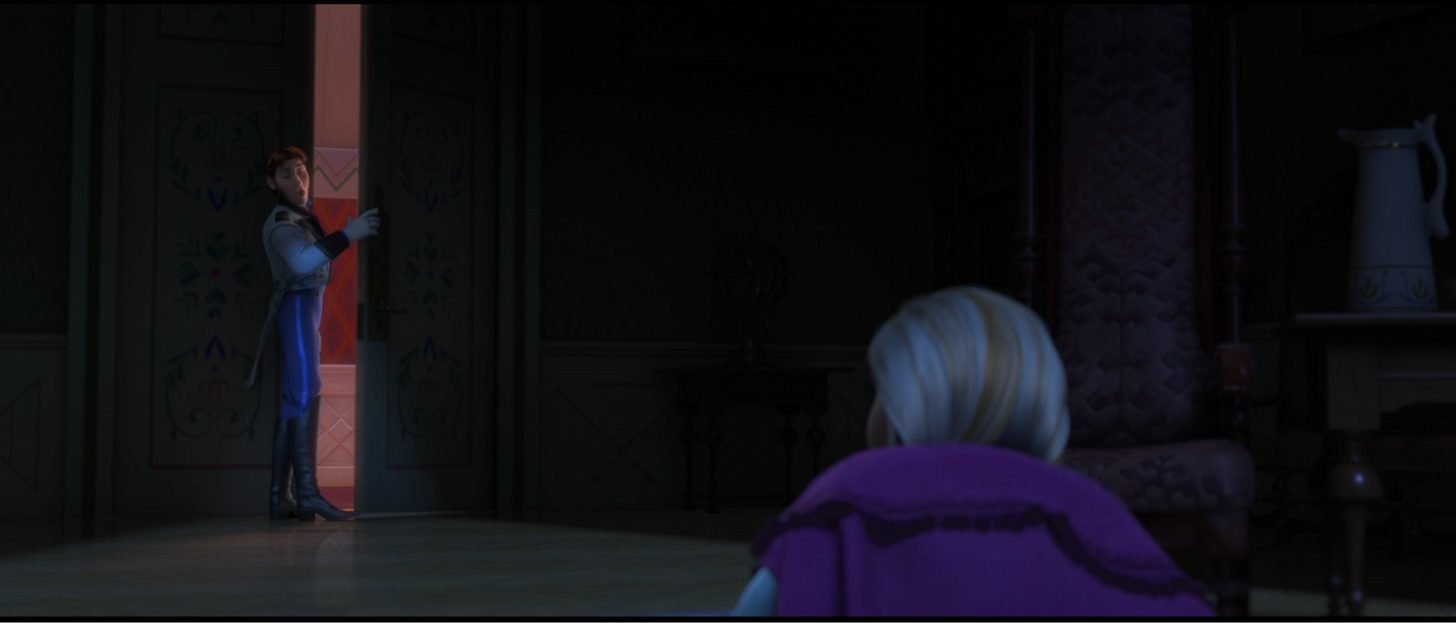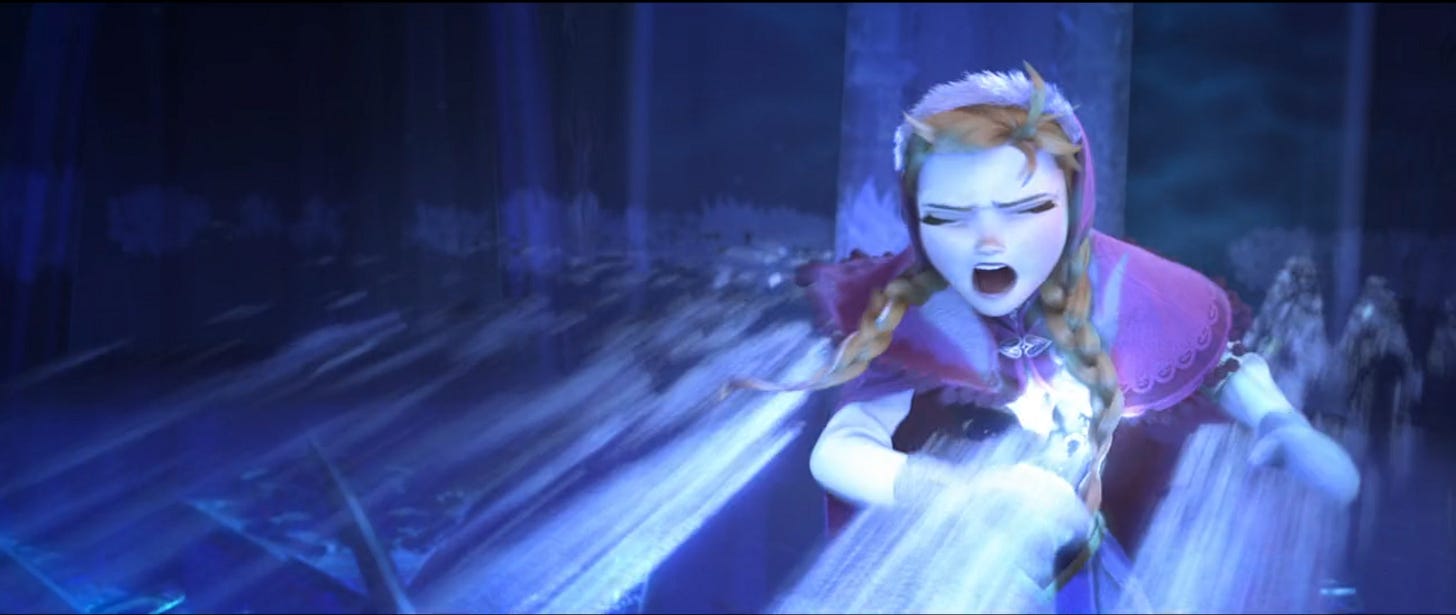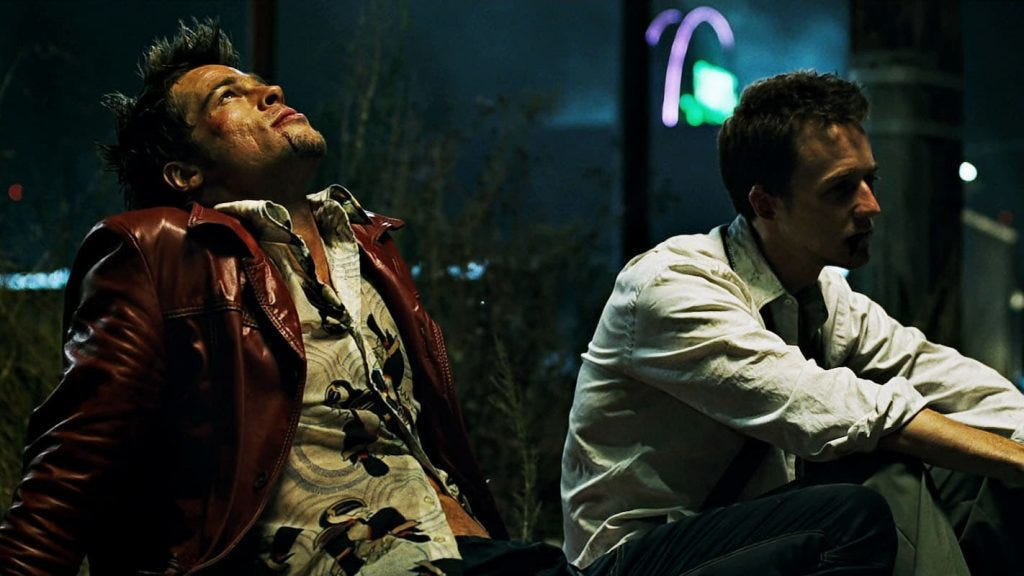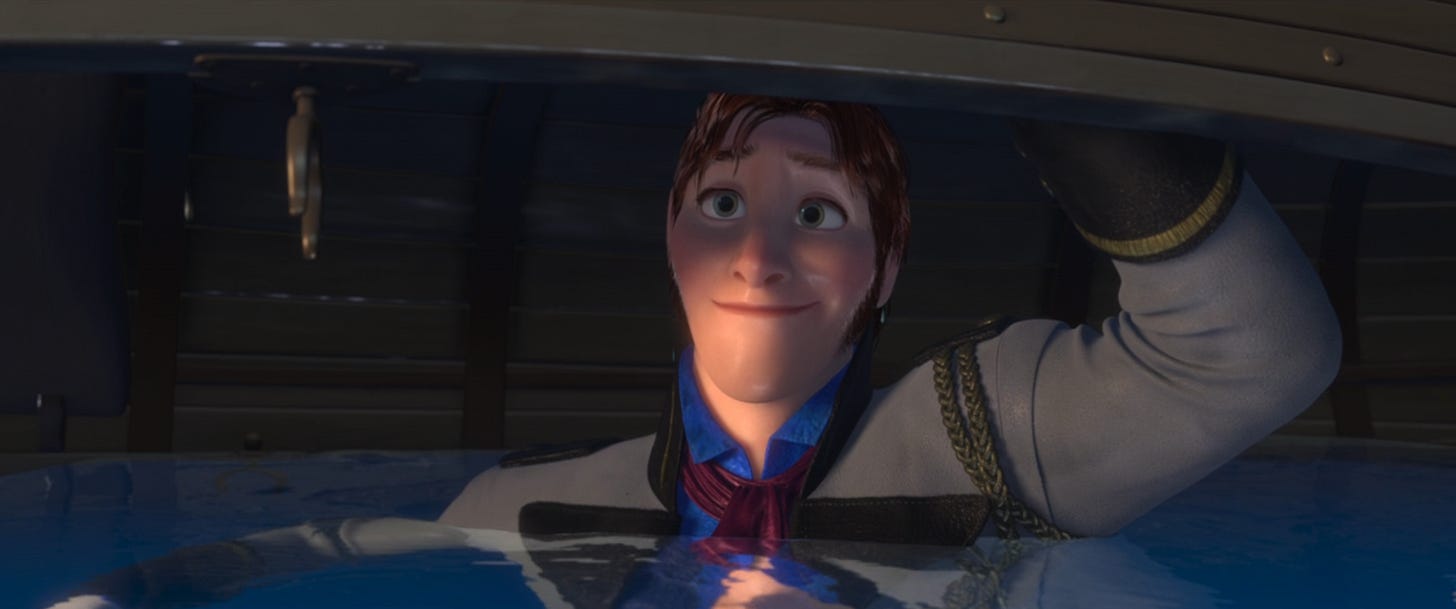Frozen’s Lie: How a Tiny Detail Can Ruin a Story
No I won't Let it Go
When I started writing fiction two years ago, I became obsessive over studying storytelling and story structure, and one of the unfortunate consequences of that deep dive has been an unconscious process running in my mind whenever I read or watch a story.
I can’t help but pick it apart and think about what it’s doing well and not doing well, not so much to judge it but rather to see what it can teach me about my own process.
With two of my daughters fully embracing their Disney princess phase, I’ve seen Frozen a few more times than I might otherwise have chosen to.
And since the marathon started, something has been bothering me about the twist. I know I’m not the first one to call it out, there’s a good bit of debate about whether it’s a good twist or not, but I’ve figured out why it doesn’t work from a storytelling perspective, and it’s an excellent lesson in the difference between surprising and betraying your audience.
The Twist
In case you haven’t seen Frozen a couple dozen times this year, the big twist comes when the princess in distress (Anna) thinks her prince charming (Hans) can save her from her frozen heart with a true love’s kiss.
Just before kissing her though, Hans reveals he never loved her, he was using her to try to take over the kingdom. He refuses to kiss her, and in the interest of speeding things up puts out the fire keeping her warm and locks her in a room to die.
The twist plays on the resolutions of earlier Disney movies like Sleeping Beauty and Snow White where the prince does save the day by kissing the princess, and it leans on your expectation of Disney to follow that trope.
It also leans on Anna’s breadcrumbed naiveté throughout the earlier parts of the movie, making decisions like marrying a man she met that day, charging off into a blizzard on her own, and repeatedly ignoring her ice witch sister telling her “hey you should really stay away because I can’t control this and you might die.”
The Problem
Point of view is one of the most important aspects of telling a story as it dictates how the story is communicated to the audience and what part of the story they have access to. And it is especially important for a good twist, because the parts of the story you have access to through the point of view dictate what you do and do not know as an audience member, and thus how surprised you can be.
In Fight Club, 100% of the story is told through the narrator’s (unnamed, played by Edward Norton) point of view. The only times you aren’t seeing through his eyes is when he’s retelling stories that other characters have told him. You never see anything from Marla’s for Bob’s POV because it would immediately reveal Tyler doesn’t exist.
The narrator is unreliable, he’s hallucinating this whole other person in his life, but you don’t realize that until later because you don’t immediately have a reason to believe the accuracy of his storytelling is compromised. There are hints that he’s unreliable during the first watch, like the flashes of Tyler during earlier scenes, but most people don’t catch it. Then when you rewatch the movie, his unreliability feels obvious.
Frozen has no narrator and no interiority. The closest you get to seeing someone’s thoughts is when a character is talking to themselves, so you are mostly inferring their thoughts and motivations through their actions.
The narrator in Fight Club repeatedly breaks the fourth wall and talks directly to the audience, which makes his unreliability more believable. You have a direct relationship with him separate from the relationships among the characters in the story. Frozen does not create this kind of separate relationship, just the relationships among the characters.
We know Elsa has secret powers because we see her history and her struggle, she never tells us. So to the extent characters are lying in Frozen, they should only be lying to each other. There’s no reason to believe they could lie to us because we don’t exist as a pseudo-character in the story the way we do in Fight Club.
And so the twist with Hans’s secret plotting could work, because we mostly see him through Anna’s naive eyes. Their moments at the ball, their song, and when Anna charges off after Elsa, they’re all largely from Anna’s doe-eyed perspective and it colors how we see Hans. He seems to share her romanticism, and seems noble when he rides off to save her after her horse trots back to the town without her. Most of the early moments where we see him without Anna, he’s surrounded by other people and seems to be keeping up the act of being a noble savior and protector.
If this was all we had of Hans, I think the twist would work. All of those actions do make sense as part of a conniving plot to take over power from the innocent princess.
But it gets ruined by one tiny detail.
The Mistake
Anna and Hans meet early in the first act, when Hans accidentally hits Anna with his horse, then narrowly saves her from falling into the river. They awkwardly fall on top of each other in a boat, both clearly acting smitten, then Anna runs off to prepare for the coronation.
If the interaction stopped right there it would still work fine for the twist, because on rewatch, we could interpret it as Hans acting, trying to fool Anna into believing he’s as smitten with her as she is with him. And because we’re seeing this largely from Anna’s point of view, we naturally share her naivete and desire for a love story to emerge, especially after that desire being seeded during the previous song “For the First Time in Forever”:
For the first time in forever
I could be noticed by someone
And I know it is totally crazy
To dream I’d find romance
But for the first time in forever
At least I’ve got a chance
But the scene doesn’t end when Anna runs off. It should, since everything has been from her point of view up to this point, but after Hans’s horse “waves” goodbye to Anna, Hans ends up falling in the lake, and then he lifts up the boat to watch Anna leave.
This tiny beat is the whole problem. If you look at Hans’s expression, he’s still clearly making the doe-eyed smitten face he was when he was talking to Anna. But he’s alone now. There’s no one there for him to lie to. The only reason to include a beat like this in a story told in this way is to tell something to the audience about the character.
It’s exactly where they could have given the subtlest clue about the deception. An evil smirk would have been too obvious, but they could have given him a curious expression or something to hint that he has something other than love on his mind.
But that’s not what they did. In this singular moment where you get a private interaction with Hans before the twist, you see him expressing the same feelings towards Anna that she’s imagining.
This is bad writing. They made the twist work not by clever deception which you can laugh at yourself for missing on the rewatch, but by directly lying to you, the audience.
That could be acceptable if Hans had a relationship with you, like the narrator does in Fight Club, but the fourth wall is never broken in Frozen. So there’s no justification for a character lying directly to the audience. Whenever you’re alone with a character in a story told this way you can safely assume you’re getting an authentic view of that character’s feelings and motivations.
It’s a perfect example of how powerful tiny details can be in a story. One sentence can change a whole book, and one beat can change a whole movie.
It Didn’t Need to Be This Way
Riffing on the story more, I’m really not sure why they even went this direction. The Duke of Weaseltown was already a good villain with compelling motivations, and they could have used him as the main antagonist after scrapping Elsa as the villain.
They could have kept the “true love” twist, too. Instead of Hans betraying Anna, they could have kissed and had nothing happen, the twist being that they weren’t in true love because they just met. This would have made sense too since that twist was breadcrumbed by Elsa and Kristoff’s reactions to Anna saying she’s in love with him.
Then Hans could have helped Anna stop the Duke from killing Elsa, and they could have kept the same second twist that it was “an act of true love” (saving her sister) that cured her. It never had to be a kiss in the first place. I think this second twist is great and it’s kinda ruined by how they botched the other one.
So why make him the villain at all? Maybe they were excited by the “evil prince” concept, maybe it was meant to have some sort of political message, I don’t know, but whatever the reason, that one tiny detail really threw a wrench in the whole thing.
Thanks for reading! If you like Sci-fi, be sure to grab a copy of my technothriller Husk. Or if you’re more of a nonfiction reader, check out Crypto Confidential.







Would love to hear your analysis of other Disney favorites!
I love this! Just yesterday I was talking about how I had never seen the movie and kind of wanted to, just out of curiosity. And although I realize I just read a bunch of spoilers, I am more excited to watch it now with your analysis than I was before. So thanks!
PS Little type here: "You never see anything from Marla’s for Bob’s POV"
PPS I'm the guy that emailed you about editing Husk!